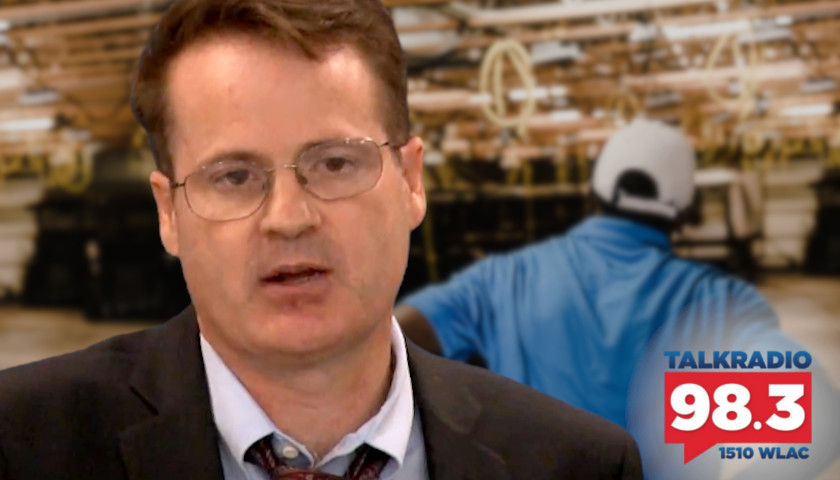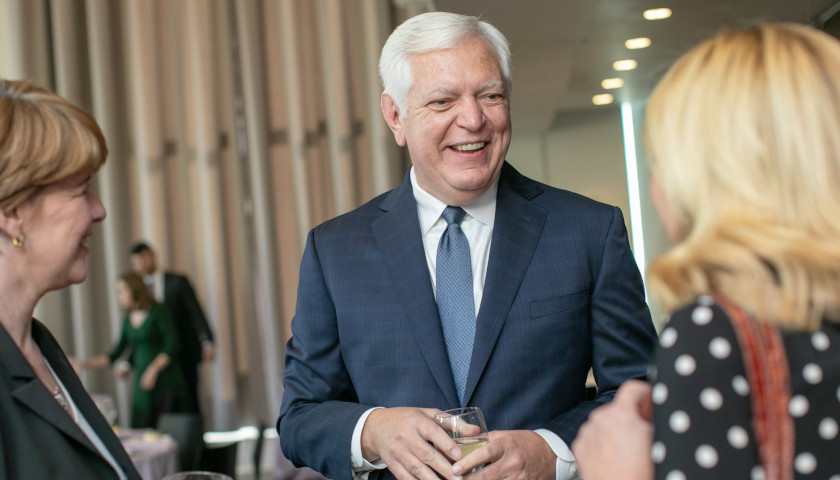Live from Washington, D.C. Wednesday morning on The Tennessee Star Report with Michael Patrick Leahy – broadcast on Nashville’s Talk Radio 98.3 and 1510 WLAC weekdays from 5:00 a.m. to 8:00 a.m. – host Leahy welcomed good friend and colleague at Breitbart News, reporter Neil Munro to the microphone to explain the economics of immigration on the coasts and the effects on labor competition.
Leahy: I am delighted beyond delighted to welcome to our microphones here, my very good friend and colleague for many, many years at Breitbart, Neil Munro. Good morning, Neil.
Munro: Delighted to be here and on time.
Leahy: You are just on top of it, my friend.
Munro: Wow.
Leahy: Neil, you and I have something in common. We have Irish heritage. Of course, mine came from my great-great grandfather from Tipporari who moved to Canada in 1840. Andrew Leahy. You are more recent. You were born in Ireland, correct?
Munro: Yes. I wandered over here. I was pulled over here during the Cold War by romance. So I’m a bridegroom of the Cold War. It’s been a very fun 40 years.
Leahy: You’ve done a great job at Breitbart. Tell us the big immigration issues that you’ve been writing about of late. And the pace at which you write is amazing.
I’m envious of that writing style and capability because you’re able to knock out a lot of very important stories at a much faster pace than I can.
Munro: I do write them reasonably fast, but at this point, I now have plenty of stuff that I copy and paste. And also I’ve been doing it for so many years. It’s a semi-machine like. I once wrote 15 stories in one day.
Leahy: 15 stories in one day?
Munro: Yes. Ridiculous.
Leahy: I think I once did five stories in one day. Back in the distant past.
Munro: Some days I do less than a half a story a day. It changes. Because I’m Irish and because I’m an immigrant, I don’t feel under any pressure from Americans. My peers in business and journalism in Washington go with the party line.
And so by default, I don’t know why I ended up focusing on the money in immigration politics. And when you follow the money, the fog lifts. It’s really different than if you follow the old stories about the nation of immigrants and must we be nice?
We have to be nice. And the money is really illuminating. When you follow the money, you understand things much more clearly than if you listen to the politicians’ blather on
Leahy: Exactly. Now, when you follow the money, what do you discover?
Munro: The money, when you bring in immigrants, you’re bringing in consumers and renters and workers. And that means that’s great for the economy. It expands the economy and creates more workers for more companies to grow. It provides more people to consume donuts, which produces more work.
There are more people going to college and school. It expands the size of the economy. But that’s not the only thing it does. It also moves money around. So you could think of it this way. What are more workers?
Well, that’s more work gets done. That’s a good thing. But it also means there’s more competition for jobs. So average wages kind of get stuck. Okay, that’s one thing. Then there’s another one.
When immigrants fly into New York and California, the investors in those states say, well, if I’m going to open a new factory or in business, I’ll send my hiring manager down to the airport and we’ll pick up the workers that way.
That means the investors in New York and California never have to invest. Never have to send people out to Kentucky or Iowa or Nebraska or Colorado to see who wants a job out there.
So the investment money stays on the coasts. That keeps the jobs on the coasts. So when there’s more immigration, the immigrants fatten up the coastal states and they starve the Heartland states of investment.
And over time, that means homes and real estate values stall in the middle of the country as do wages. That’s one reason why the Heartland states are growing relatively poorer each year compared to the coastal states like New York and for that matter, Texas.
There are many other things. For example, there used to be companies when they were short of workers. We had curbs on immigrants from 1920 to basically the 1970s. And companies have to spend a lot of money, finding labor-saving devices for their workers so they can get them to do more work faster.
That’s good. It means everybody gets richer because we’re doing more work than they are today. But when there are more workers the company owners and the investors say, let’s not buy more machines. Let’s just hire more cheap workers. And so there’s less investment in productivity and labor-saving gear.
Leahy: Neil Munro, do you have to go elsewhere? Can you stay with us for the next break? You, my friend, have made my day because I get to have two segments with my good friend Neil Munro of Breitbart News.
– – –
Tune in weekdays from 5:00 – 8:00 a.m. to the Tennessee Star Report with Michael Patrick Leahy on Talk Radio 98.3 FM WLAC 1510. Listen online at iHeart Radio.
Photo “Neil Munro” by Center for Immigration Studies.








